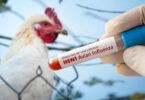The following report is a press release by the World Health Organization (WHO), published on August 1st:
They emphasized the importance of expanding research to encompass entire families of pathogens that can infect humans–regardless of their perceived pandemic risk–as well as focusing on individual pathogens. The approach proposes using prototype pathogens as guides or pathfinders to develop the knowledge base for entire pathogen families.
At the Global Pandemic Preparedness Summit 2024 held in Rio de Janeiro, Brazil, WHO R&D Blueprint for Epidemics issued a report urging a broader-based approach by researchers and countries. This approach aims to create broadly applicable knowledge, tools and countermeasures that can be rapidly adapted to emerging threats. This strategy also aims to speed up surveillance and research to understand how pathogens transmit and infect humans and how the immune system responds to them.
The report’s authors likened its updated recommendation to imagining scientists as individuals searching for lost keys on a street (the next pandemic pathogen). The area illuminated by the streetlight represents well-studied pathogens with known pandemic potential. By researching prototype pathogens, we can expand the lighted area, gaining knowledge and understanding of pathogen families that might currently be in the dark. The dark spaces in this metaphor include many regions of the world, particularly resource-scarce settings with high biodiversity, which are still under monitored and understudied. These places might harbor novel pathogens, but lack the infrastructure and resources to conduct comprehensive research.

“WHO’s scientific framework for epidemic and pandemic research preparedness is a vital shift in how the world approaches countermeasure development, and one that is strongly supported by CEPI. As presented at the Global Pandemic Preparedness Summit 2024 in Rio de Janeiro, Brazil, this framework will help steer and coordinate research into entire pathogen families, a strategy that aims to bolster the world’s ability to swiftly respond to unforeseen variants, emerging pathogens, zoonotic spillover, and unknown threats referred to as pathogen X”, said Dr Richard Hatchett, CEO of CEPI.
The prioritization work underpinning the report involved over 200 scientists from more than 50 countries, who evaluated the science and evidence on 28 virus families and one core group of bacteria, encompassing 1652 pathogens. The epidemic and pandemic risk was determined by considering available information on transmission patterns, virulence, and availability of diagnostic tests, vaccines, and treatments.
CEPI and WHO also called for globally coordinated, collaborative research to prepare for potential pandemics.
“History teaches us that the next pandemic is a matter of when, not if. It also teaches us the importance of science and political resolve in blunting its impact,” said Dr Tedros Adhanom Ghebreyesus, WHO Director-General. “We need that same combination of science and political resolve to come together as we prepare for the next pandemic. Advancing our knowledge of the many pathogens that surround us is a global project requiring the participation of scientists from every country.”
To facilitate this, WHO is engaging research institutions across the world to establish a Collaborative Open Research Consortium (CORC) for each pathogen family, with a WHO Collaborating Centre acting as the research hub for each family.
These CORCs around the world will involve researchers, developers, funders, regulators, trial experts and others, with the aim to promote greater research collaboration and equitable participation, particularly from places where the pathogens are known to or highly likely to circulate.
AUTHOR COMMENTARY
Job 13:4 But ye are forgers of lies, ye are all physicians of no value.
Tedros has been using that same line a lot this year – “the next pandemic is a matter of when, not if.” That pimp for Bill Gates wants everyone to know that another shamdemic will be put into action in the not-so-distant future; which this time will actually and undoubtedly claim lives; because of the Covid shots, wars, famine, breakdown of the grid, increases in EMF radiation and so on.
WHO Director-General Tedros Says ‘It’s Time To Be More Aggressive In Pushing Back On Anti-Vaxxers’
[7] Who goeth a warfare any time at his own charges? who planteth a vineyard, and eateth not of the fruit thereof? or who feedeth a flock, and eateth not of the milk of the flock? [8] Say I these things as a man? or saith not the law the same also? [9] For it is written in the law of Moses, Thou shalt not muzzle the mouth of the ox that treadeth out the corn. Doth God take care for oxen? [10] Or saith he it altogether for our sakes? For our sakes, no doubt, this is written: that he that ploweth should plow in hope; and that he that thresheth in hope should be partaker of his hope. (1 Corinthians 9:7-10).
The WinePress needs your support! If God has laid it on your heart to want to contribute, please prayerfully consider donating to this ministry. If you cannot gift a monetary donation, then please donate your fervent prayers to keep this ministry going! Thank you and may God bless you.








https://rumble.com/v4xs7zl-may-27-2024.html
Thanks for the video, I’ll check into that.